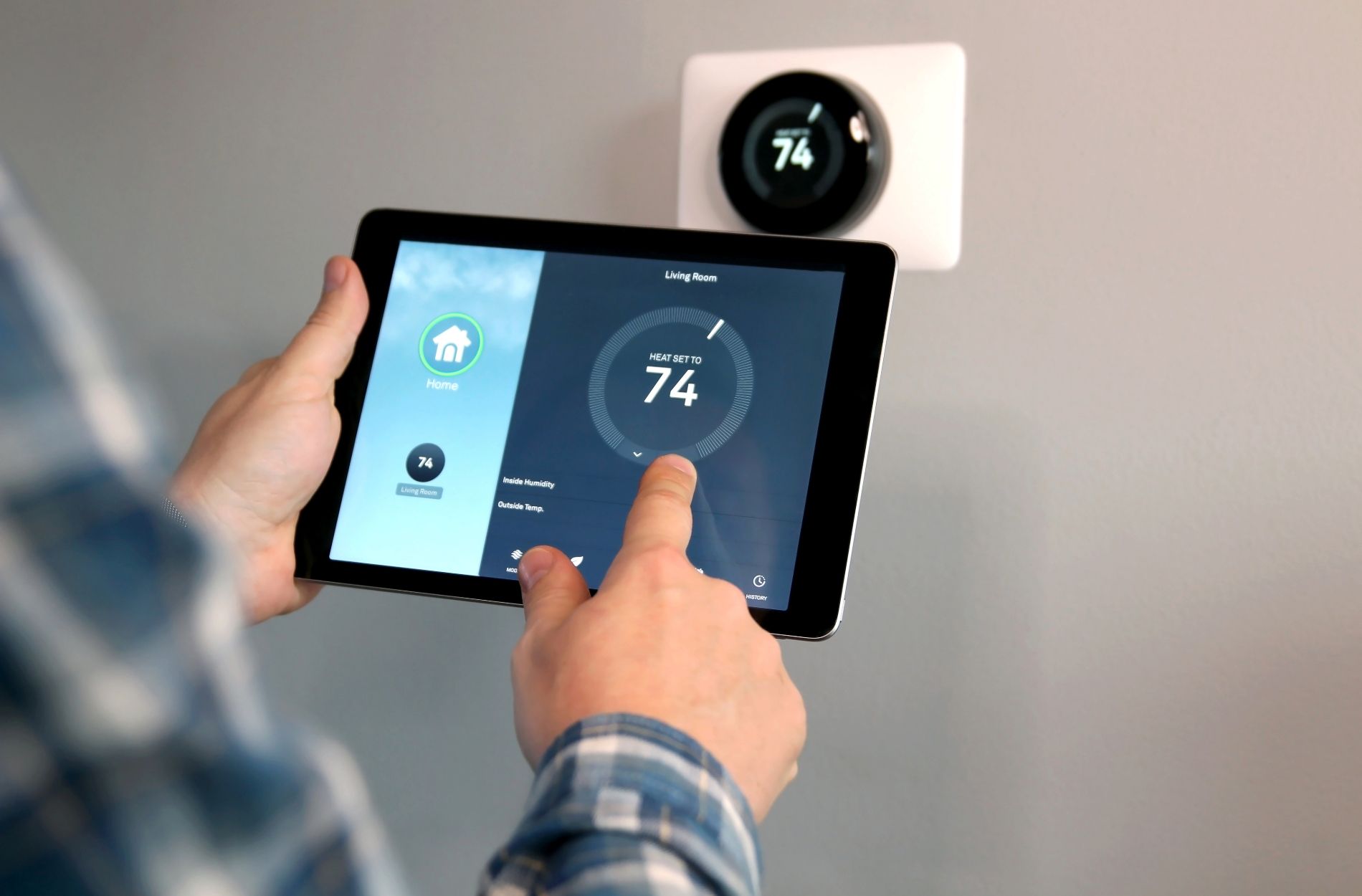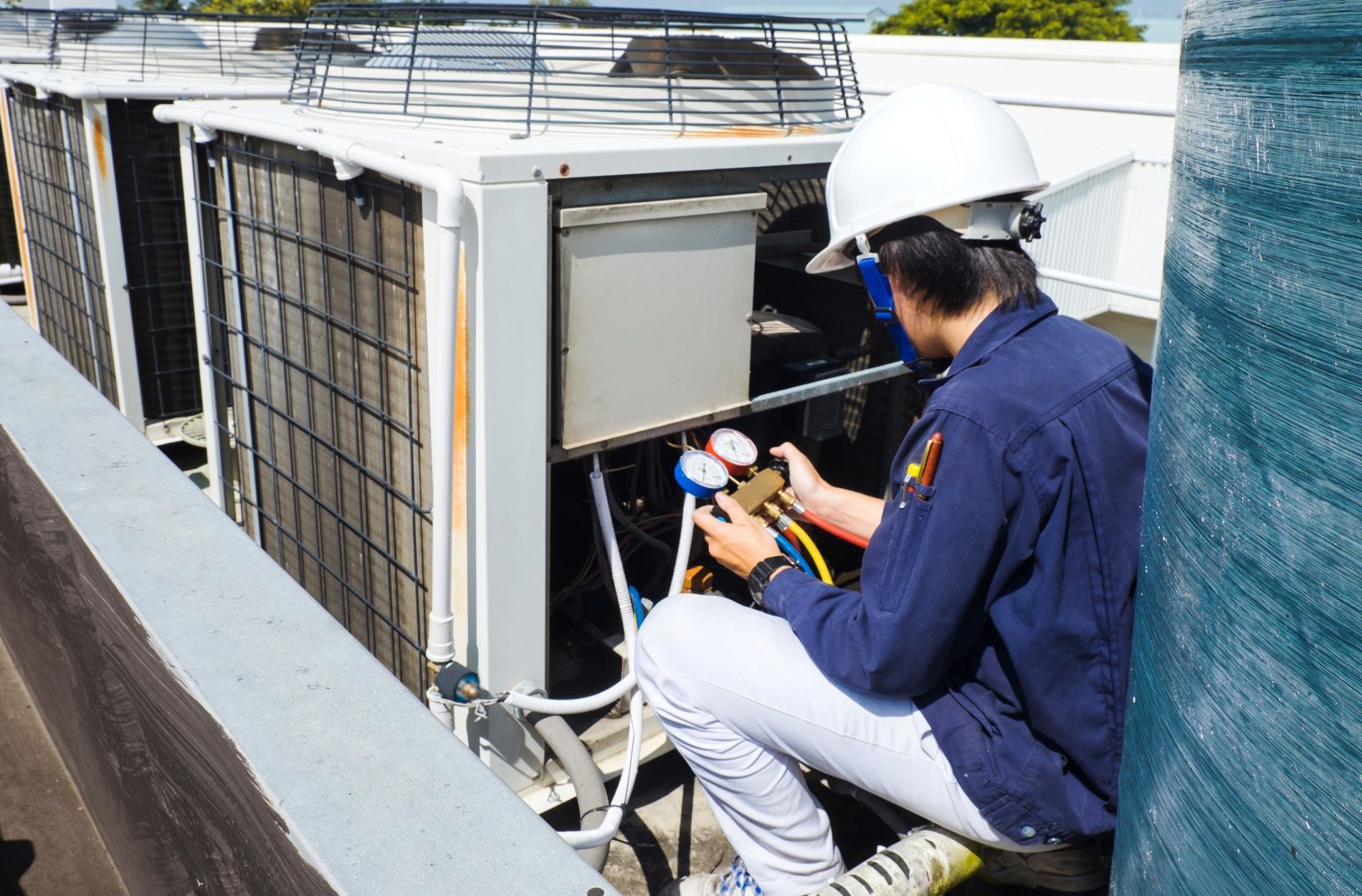Indoor Air Quality and Your HVAC System: Tips for Cleaner, Healthier Air in Your Home
Indoor air quality (IAQ) is an essential factor in maintaining the overall health and well-being of your family. Poor indoor air quality can cause a range of health issues, from allergies and asthma to an increased risk of respiratory illnesses. With people spending a significant amount of time indoors, it is crucial to ensure the air we breathe is clean and safe. A well-functioning HVAC system plays a central role in maintaining good indoor air quality by effectively circulating and filtering the air within your home.
We are dedicated to helping homeowners achieve and maintain excellent indoor air quality through our comprehensive range of HVAC services. Our team of experienced technicians is well-versed in the connection between HVAC systems and indoor air quality, and we provide expert guidance, professional services, and personalized support to help you create a clean, healthy indoor environment.
In this article, we will discuss the importance of maintaining good indoor air quality, dive into the role your HVAC system plays in achieving it, and provide valuable tips for optimizing your HVAC system to improve the air quality within your home. We will also shed light on the expert services and personalized support we offer to enhance the overall indoor air quality in your home.
Indoor Air Quality and Your HVAC System: Tips for Cleaner, Healthier Air in Your Home
Understanding the Significance of Indoor Air Quality
Indoor air quality is a crucial aspect of maintaining a healthy living environment. Poor indoor air quality can cause or exacerbate a range of health issues, including:
1. Allergies and Asthma: Airborne allergens, such as pollen, dust mites, and pet dander, can trigger allergic reactions and asthma attacks in sensitive individuals.
2. Respiratory Infections: Poor indoor air quality can increase the risk of respiratory infections, such as the common cold or flu, particularly for children, the elderly, and those with compromised immune systems.
3. Irritated Eyes, Nose, and Throat: Contaminants in your indoor air can cause irritation in the eyes, nose, or throat, leading to discomfort and impacting overall well-being.
4. Reduced Cognitive Function: Studies have shown that exposure to indoor air pollutants can hinder cognitive function and impair concentration, memory, and decision-making abilities.
How Your HVAC System Affects Indoor Air Quality
Several factors can contribute to poor indoor air quality, with your HVAC system playing a central role in potentially improving or exacerbating the situation, depending on its overall performance and maintenance. An efficient and well-maintained HVAC system can help to:
1. Circulate Fresh Air: Your HVAC system helps to circulate fresh air throughout your home, diluting indoor air pollutants and reducing the concentration of harmful particles.
2. Remove Contaminants: HVAC systems equipped with high-quality air filters can effectively remove airborne contaminants, such as allergens and irritants, from the air in your home.
3. Control Humidity Levels: Properly functioning HVAC systems can help maintain ideal humidity levels, reducing the risk of mold and mildew growth and discouraging the proliferation of dust mites.
Tips for Optimizing Your HVAC System to Improve Indoor Air Quality
There are several steps you can take to enhance the role your HVAC system plays in maintaining good indoor air quality. Some of these measures include:
1. Regularly Replace Air Filters: Dirty or clogged air filters reduce the efficiency of your HVAC system, allowing airborne contaminants to circulate in your home. Replace your air filters at least every three months or more often if you have pets or family members with allergies or asthma.
2. Schedule Routine Maintenance: Arrange for routine maintenance of your HVAC system by our skilled technicians, who can help identify potential issues and ensure the system is running at optimal performance.
3. Install a High-Efficiency Air Purifier: Consider installing a whole-house air purifier in your HVAC system to effectively remove airborne contaminants, such as allergens, mold spores, bacteria, and viruses.
4. Enhance Ventilation: Ensure adequate ventilation in your home by having our team of professionals check the condition of your ductwork and make necessary repairs or upgrades. You can also use mechanical ventilation systems, such as heat recovery ventilators (HRVs) or energy recovery ventilators (ERVs), to improve indoor air quality by introducing fresh outdoor air while conserving energy.
5. Control Humidity Levels: Use dehumidifiers to lower moisture levels in your home, particularly during humid months, or invest in an HVAC system with built-in humidity controls.
Expert Services to Help Improve Indoor Air Quality
Our team of experienced technicians offers a range of expert services aimed at helping homeowners enhance indoor air quality by optimizing their HVAC systems. These services include:
1. HVAC System Maintenance: Through routine maintenance, we can help ensure your system runs efficiently, improving your air quality and performance.
2. Air Filter Replacement and Upgrades: We can recommend and install the best air filters for your specific needs, helping to remove harmful particles from your indoor air.
3. Duct Cleaning and Sealing: Our technicians can inspect and clean your ductwork, as well as seal any leaks, improving your home's ventilation and reducing the risk of indoor air contamination.
4. Ventilation System Installation and Upgrades: We can help you choose and install the best ventilation system options for your home, such as HRVs and ERVs, to enhance your indoor air quality while saving energy.
Breathe Easier with a Healthier Indoor Environment
Creating a healthier indoor environment by improving your home's air quality is not only beneficial for your family's well-being but can also enhance the performance and extend the lifetime of your HVAC system. By understanding the importance of indoor air quality and taking steps to optimize your HVAC system, you can enjoy a cleaner, more comfortable living space.
If you're searching for expert advice and professional
HVAC services in Owensboro to improve your home's indoor air quality, look no further. Contact Anytime Heating & Air today, and our experienced technicians will be glad to assist you in creating a healthier and more comfortable indoor environment.


